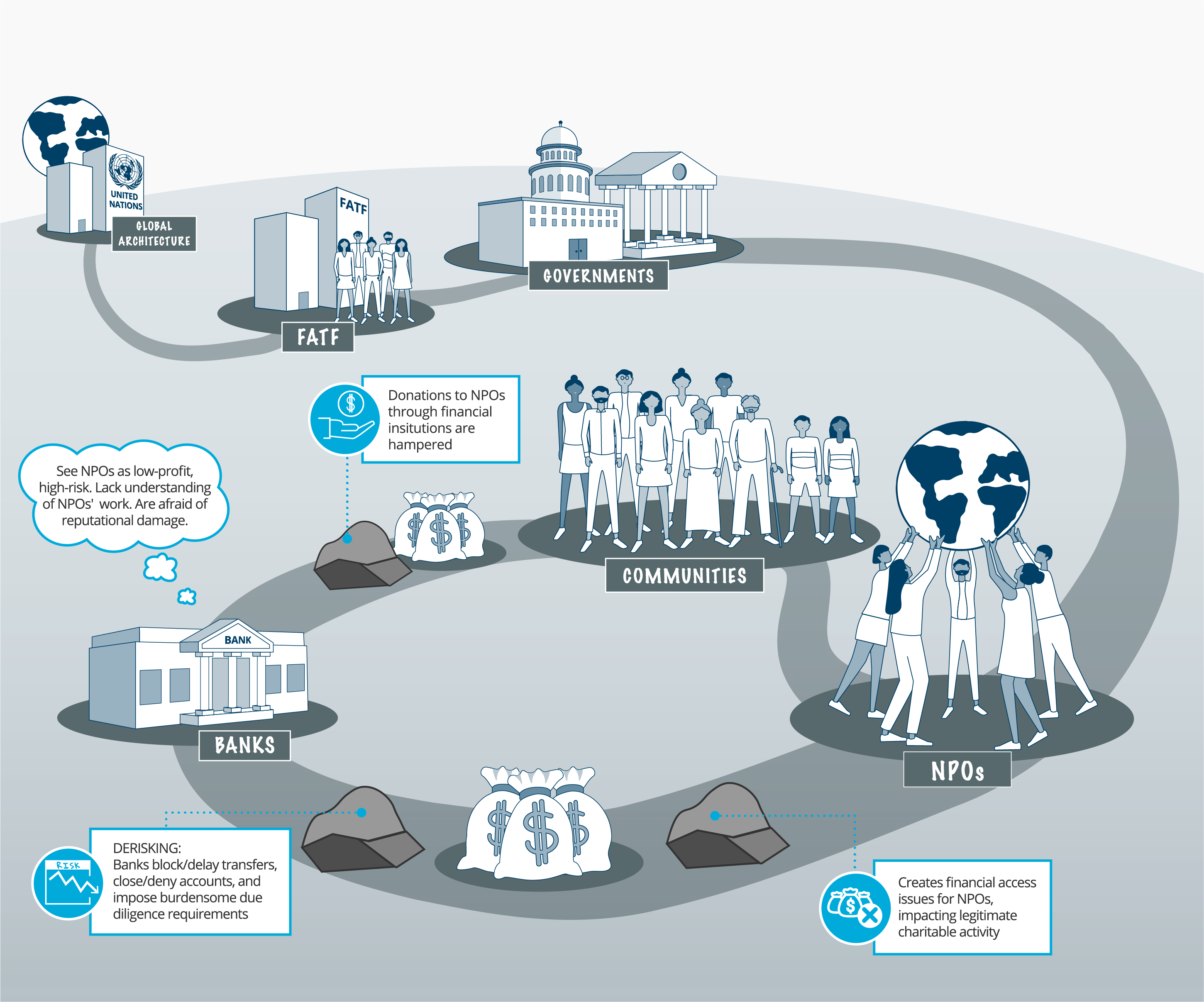Evidence of restrictions on financial transfers by nonprofits (often termed ‘bank de-risking’) to areas that are considered at-risk for terrorism financing is growing. This stems from the fact that money flows are seen as a source for terrorism financing and/or other forms of financial crime. This in turn leads to countries needing to have regulatory regimes in place to prevent this from happening.
Financial regulators and supervisors all around the world are becoming more forceful on CFT (countering the financing of terrorism) compliance by financial institutions (banks) and other sectors such as NPOs.
This regulatory regime is, in turn, internalized by the financial services sector. Banks and money transfer agencies are required to carry out extensive due diligence on their customers to fulfil compliance requirements, and face large fines and/or untold reputational damage if they are found to be in contravention of any of these regulations.
Many NPOs, especially those that work in, on and around conflict zones, have been affected by these stringent requirements. Banks consider nonprofits to be high risk for financial crime, expensive for compliance and low profit in general, resulting in the terminating of or a refusal to take on relationships with many NPOs. There have been inordinate delays in cash transfers for NPOs as due diligence is repeated by the intermediate or correspondent banks throughout the cash transfer chain, impacting programme delivery.
The consequences of bank de-risking are undermining other policy goals and concerns such as those of economic development, the rollout of the UN Sustainable Development Goals, human rights protection, the creation of an enabling environment for civil society and last, but not least, the financial inclusion of the world's marginalized.





